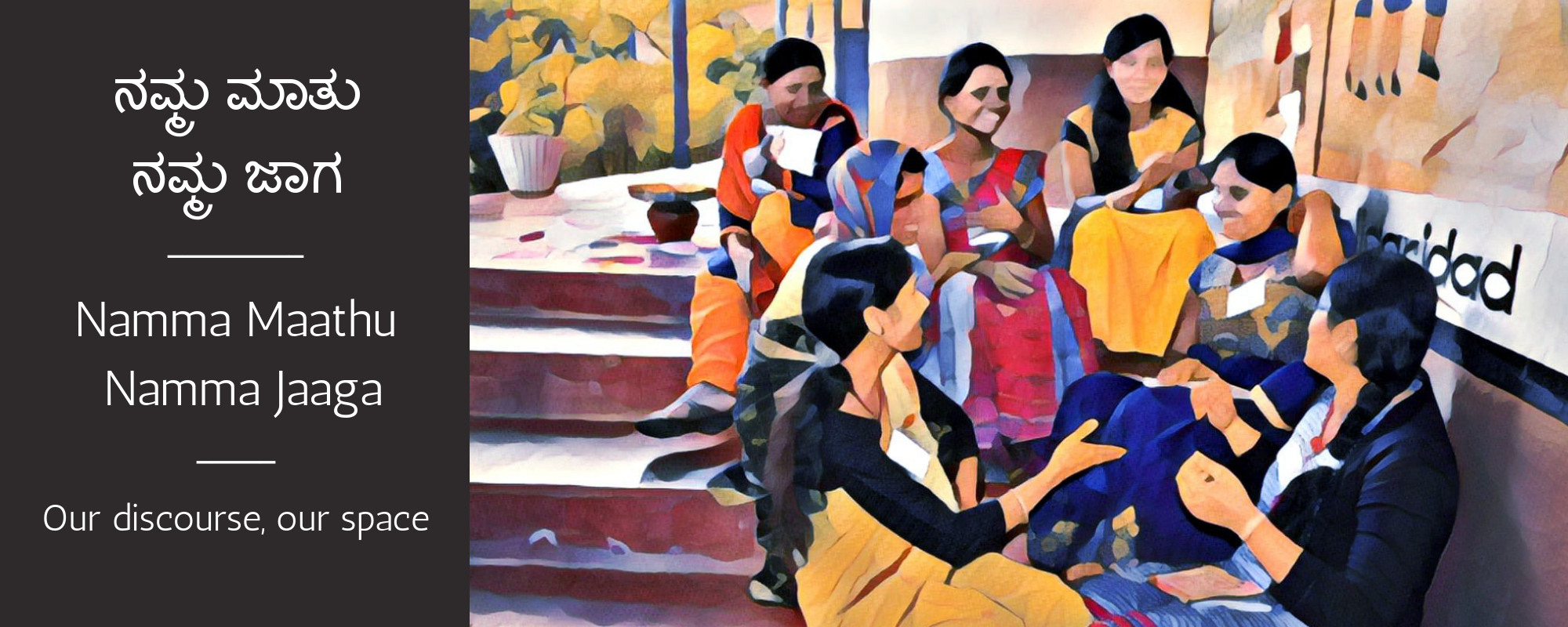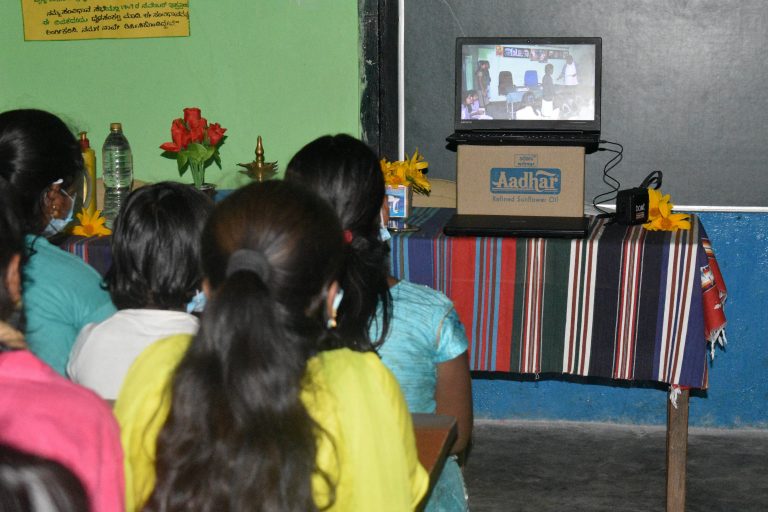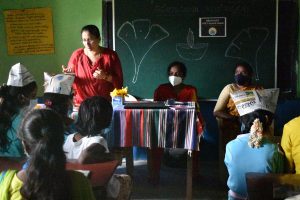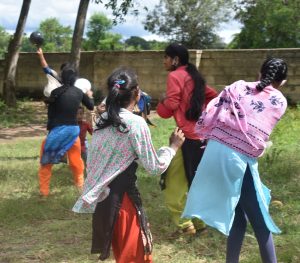
Claiming Rights to the Digital
Nayana Kirasur | October 2021

Prakriye celebrated the International Day of Girl Child, 2021 with adolescent girls across our operational villages in HD Kote, Sargur, and Hunsur blocks of Mysuru district, Karnataka.
In keeping with this year’s theme – Digital Generation. Our Generation – Prakriye kickstarted its IVR (Interactive Voice Response) initiative to disseminate relevant information to adolescent girls through IVR messages. The initiative aims to encourage them to adopt technological devices to meet their knowledge and networking needs.
The continued effects of pandemic-induced school closures and lack of access to digital devices coupled with financial crisis have forced girls to drop out of schools, join the labor force to contribute to the family income, and take up domestic responsibilities. Several girls have even married off. Amid deepening gender inequalities, there is an urgent need to reiterate girls’ rights to education, mobility, freedom, and equality.
Access to the Digital: A Feminist Issue
The patriarchal attitudes and social norms that constrain women and girls’ education, occupation, mobility, marital choice, also constrain their access to the digital. Harvard Kennedy School reported that 71% of men in India own mobile phones, whereas only 38% of women do. The report identified two broad, intersecting classes of barriers to Indian women’s use of mobile phones: economic and normative. Economic barriers are factors directly or indirectly related to the financial and infrastructural requirements for owning and operating mobile phones such as cost of the device, network reception, etc. Normative barriers include the socio-cultural norms, customs, and beliefs that restrict access to mobile phones. The report mentions that the gender gap in access to the digital “begins as girls enter puberty and widen[s] as they become more likely to marry”.
Naomi Fontanos, an activist, says that the oppression women face offline reflects online as well. The ability to participate on digital platforms is a feminist issue and “women must reclaim not just the streets [offline spaces] but also digital spaces”, she added. Our interview with Rani*, a 19-year-old student from a village in Hunsur block, reflected this reality. She shared that her brother had instructed her to delete her social media accounts and not make any new ones because he considered them to be unsafe.
On International Day of Girl Child 2021, UN Women called for working towards equal opportunities for girls to “safely and meaningfully access, use, lead and design technology”. To mark the occasion, Prakriye launched its IVR initiative to engage with adolescent girls across our operational areas.
The content of the IVR messages encourages girls to expand their knowledge by introducing them to new concepts and facts covering areas such as culture, history, geography and science. The messages will also expand their vocabulary by introducing new words in English, Kannada and Hindi. The initiative aims to incorporate content that sheds light on women’s political, legal, and cultural rights.
Creating Spaces for Critical Reflection
Our engagement with adolescent girls focuses on building their capacities to challenge gender norms and exercise their rights. To this end, we deploy various media strategies to initiate conversations around gender justice and bring progressive changes in the villages. To mark the International Day of Girl Child, we screened a documentary about one of our training sessions for adolescent girls. The film narrated the story of girls in one of our outreach villages who collectivized and brought facilities such as public transport and library to their village.
This film screening was followed by an in-depth discussion where the adolescent girls critically reflected on issues in their villages. “Our village also does not have a proper bus service. We have trouble making it to class on time”, shared Kamala*, a 17-year-old girl from a village in Hunsur block. Colleges, especially for streams like science, require students to attend extra classes. Due to improper and unsafe public transport, girls end up not choosing the subjects they desire. Renuka*, a 16-year-old girl asked, “How can we claim our right to education if we cannot travel to schools [or colleges] freely and safely?” Energized after watching the film, the girls also decided to collectively demand a bus service from their village panchayat and the local bus depot.
Creating Platforms for Networking
Establishing connections with local governing bodies and public service providers is crucial to push for gender-responsive governance. To facilitate such critical networking, Prakriye invited the Child Development and Protection Officers (CDPO) from the Department of Women and Child Development (WCD), the local Anganwadi Workers and ASHA (Accredited Social Health Activist) Workers to the event.
CDPOs of both Hunsur and HD Kote blocks interacted with the girls and discussed how gender norms affect their education and nutrition and contribute to violence against women, and child marriages. Since child marriages in Hunsur and HD Kote blocks have increased significantly since the pandemic began, the CDPOs urged girls to report such cases to the local Anganwadi teachers. They insisted that the girls connect with their village ASHA worker to address any issue related to their health.

Along with reflecting on matters of everyday significance, the girls participated in fun-filled activities such as singing, games, craft, and debate competitions. As a memento, Prakriye presented biographies of 5 women to take inspiration from. Mary*, an 18-year-old student shared that, “Today was a wonderful day. I learned so many new things. I feel happy!”

* Names of all the interviewees have been changed to protect their privacy